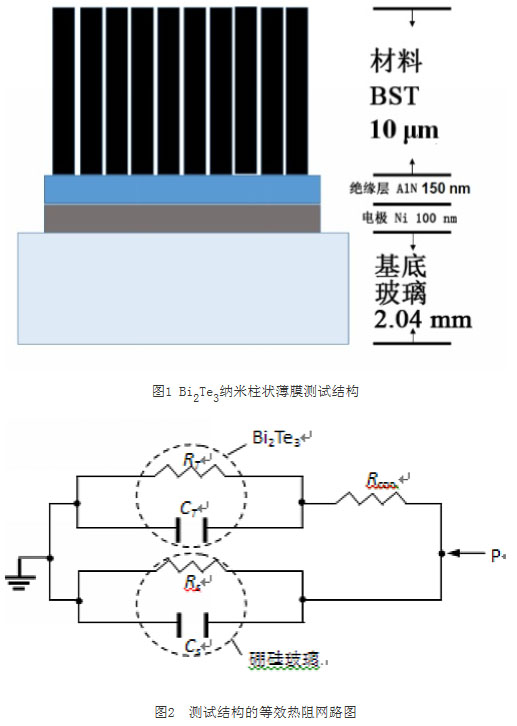Making a thermoelectric material into a nanocolumn film structure is a control method that can theoretically reduce the thermal conductivity and greatly increase the thermoelectric figure of merit. However, the problem is that it is difficult to accurately obtain the thermal conductivity of the nano-column film. Because the Bi2Te3 oriented nano-columnar film is a porous structure composed of micron-sized nano-pillar arrays, its surface roughness is relatively large. The experimental scheme of directly depositing a nanometer-thick micro metal detector on the surface cannot be applied. The conventional thermal property test methods have been unable to apply to the characterization of the thermal transport properties of such porous and micron-sized structures.
Recently, the Heat and Mass Transfer Research Center of the Institute of Engineering Thermophysics of the Chinese Academy of Sciences has developed a 3ω method based on harmonic detection based on the measurement of micro-nanoscale thermal properties for many years, achieving Bi2Te3 oriented nano-pillared micro/nano composite thin film thermal conductivity. Rate test. The research group proposed a new type of 3ω test structure: a three-phase four-electrode miniature Ni sensor was directly deposited on a glass substrate, an insulating layer was then deposited thereon, and Bi2Te3 oriented nanocolumn-shaped thin films were finally grown. The arrangement and thickness of the materials in each layer are shown in FIG. 1, in which the shape of the miniature nickel sensor is shown in FIG. 2. With the new test structure, the thermal conductivity and thermal diffusivity of the experimentally obtained Bi2Te3 nanocolumn films are 1.0 W/(m·K) and 1.26×10-6 m2/s respectively, which is in good agreement with the literature. The method provides a reliable evaluation method for the thermal transport properties of micro-nano thermoelectric thin film materials.
The above work was supported by the National Natural Science Foundation of China (51336009). The research results are published in the Journal of Engineering Thermophysics.

CHANGXING GUANGDA NEW MATERIALS CO.,LTD. , https://www.gdbentonite.com